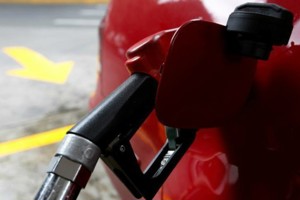European gasoline arb to US East Coast widens; freight rates limit flows
(Reuters) -- US gasoline prices recently soared to multiyear seasonal highs over European prices, setting the stage for more imports from across the Atlantic, but high freight costs mean not everyone will be able to take advantage of the arbitrage opportunity.
The difference between benchmark RBOB US gasoline and benchmark Eurobob gasoline prices hit their widest for this time of year in at least six years late in December.
After about a year of oversupply on the US East Coast, inventories are falling in line with historic averages. In addition, a spate of refinery outages and stronger crude prices has helped boost gasoline prices, traders said.
However, European prices have not rallied at a similar pace, opening up an arbitrage opportunity for European refiners. ExxonMobil Corp and Cepsa SA have successfully booked cargoes in recent days, traders said.
One New York Harbor cash trader said the arb is at its strongest in the last 12 months, excluding periods when the key Colonial Pipeline that supplies product to the East Coast was shut.
Benchmark US gasoline's premium over European gasoline widened to as much as $7.49 per barrel by Dec. 27, the biggest seasonal gulf since at least 2010.
The US East Coast accounts for nearly a third of the country's total gasoline demand. Because European refiners produce more gasoline than required on that continent, they have long profited by exporting to the busy East Coast.
The widening in the US gasoline premium over Europe has not yet led to a surge in imports. Due to high freight rates, few cargoes have been able to go through and the window to make this trade profitable has narrowed in recent days.
Imports of total motor gasoline into PADD 1, or the East Coast, sank to the lowest in a year in the week to Dec. 23 at 374,000 bpd. Last week, imports rebounded to a one-month high of 690,000 bpd in the week to Dec. 30, according to US government data.
Spot tanker freight rates from Rotterdam to Philadelphia have climbed through December to the highest levels in more than a year.
Several tankers were tentatively booked out of Europe on the transatlantic route in recent days, traders said, but few cargoes went through.
In the last week of December, about seven cargoes were booked on the transatlantic route and so far in January, there have been around 11 cargoes locked in.
However, two fixtures slated for mid-January loadings, the Navig8 Constellation and the STI Battery, failed, according to a source familiar with the matter. Several other tankers that have been fixed will likely also not sail, traders and ship brokers said, due to soaring freight rates.
Slow winter month demand also can limit imports. The US East Coast gets one or two big snowstorms that crush demand in January or February, making it harder to find buyers.
Reporting by Devika Krishna Kumar in New York; Additional reporting by Ron Bousso in London; Editing by Lisa Shumaker







Comments